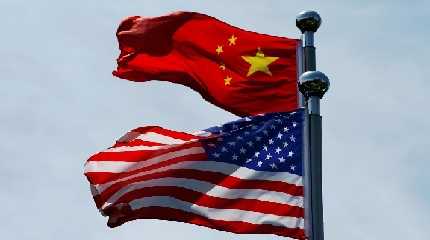
WASHINGTON, July 26 (Reuters) - The United States on Tuesday accused China of increased "provocations" against rival claimants to territory in the South China Sea and other states operating there.
"There is a clear and upward trend of PRC provocations against South China Sea claimants and other states lawfully operating in the region,” Jung Pak, deputy assistant secretary for East Asia at the State Department, told a U.S. think tank event, referring to the People's Republic of China.
Pak told the Center for Strategic and International Studies that Chinese aircraft had increasingly engaged in unsafe intercepts of Australian aircraft in international airspace above the South China Sea and in three separate incidents in the last few months had challenged marine research and energy exploration activities within the exclusive economic zone of the Philippines.
Pak made the comment ahead of an anticipated call between President Joe Biden and Chinese President Xi Jinping this week, which is expected to focus on ways to prevent the growing U.S.-China strategic rivalry veering into conflict, particularly over the self-ruled Chinese-claimed island of Taiwan.
Her remarks also came ahead of meetings of Southeast Asian foreign ministers and partners, including the United States, next week in Cambodia.
China claims nearly all of the South China Sea and Pak called the claims "expansive and unlawful."
She added that China's "provocative actions" to implement such claims "contribute to regional instability, damage the economies of other claimant states, undermine the existing maritime order, and threaten the rights and interests of all nations that rely on or operate in this vital waterway."
Pak said Washington had a "very complicated relationship with Beijing" was not trying to counter everything it was doing in Southeast Asia and the rest of the developing world.
"We want to make sure that countries, as they have their relationships with Beijing, have the tools and the power, and the and the ability to stand up for their autonomy and their sovereign decision making," she said.




